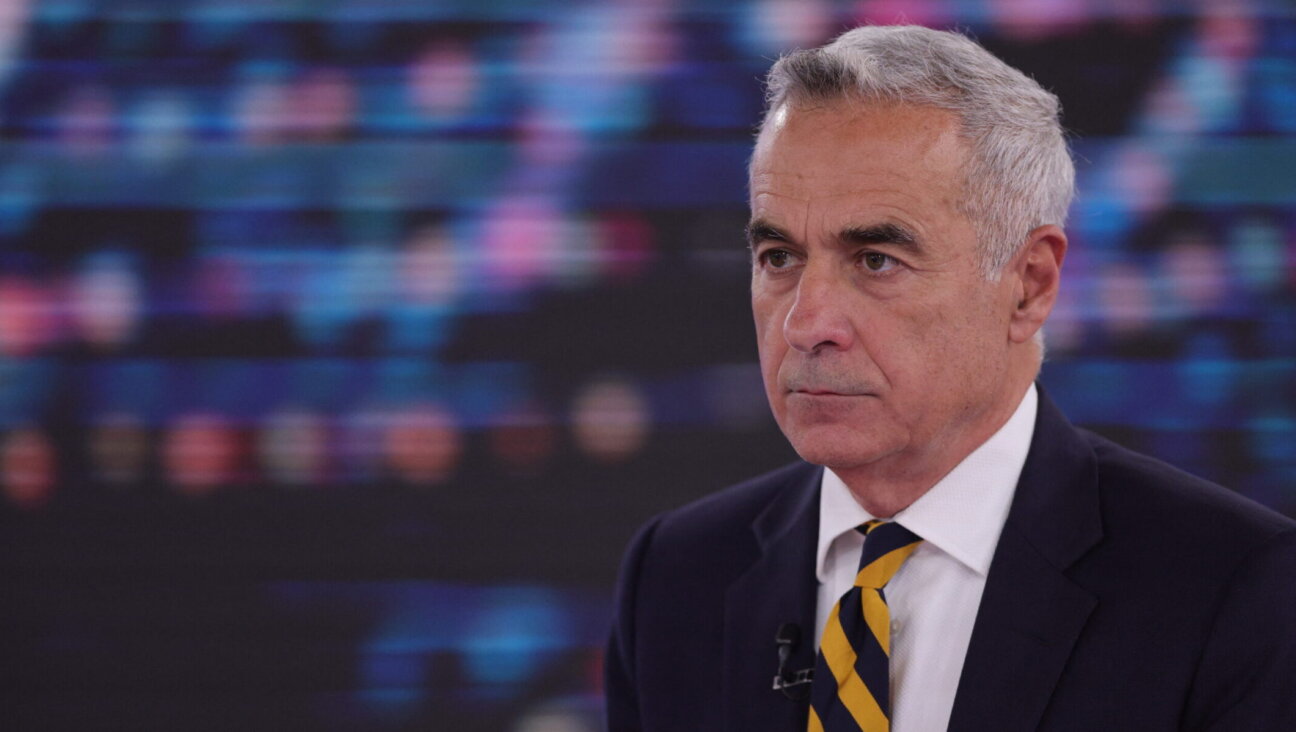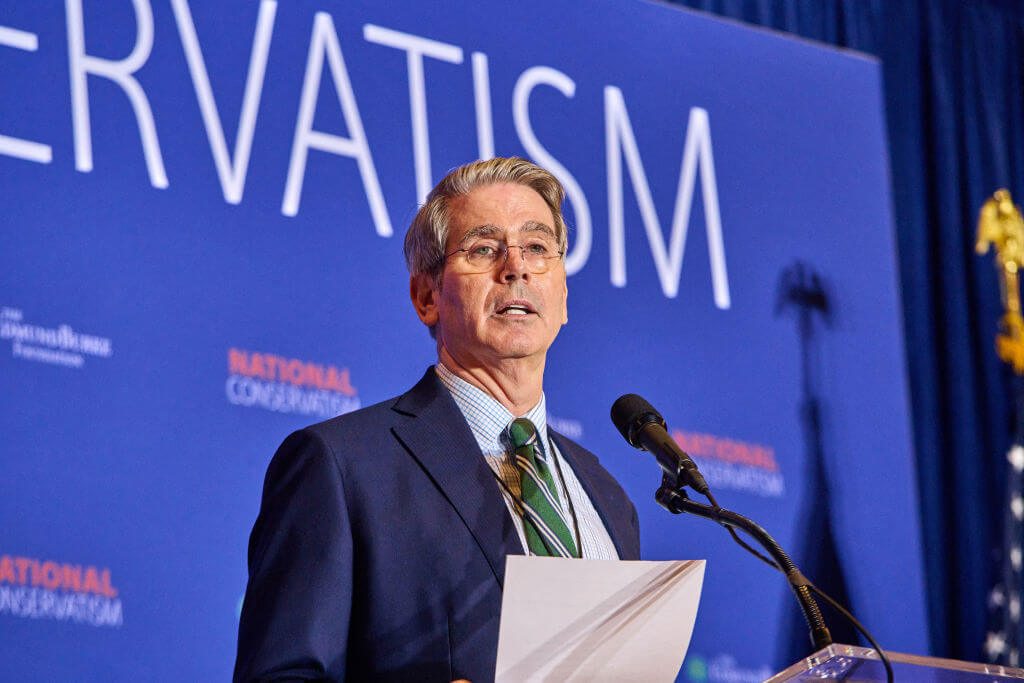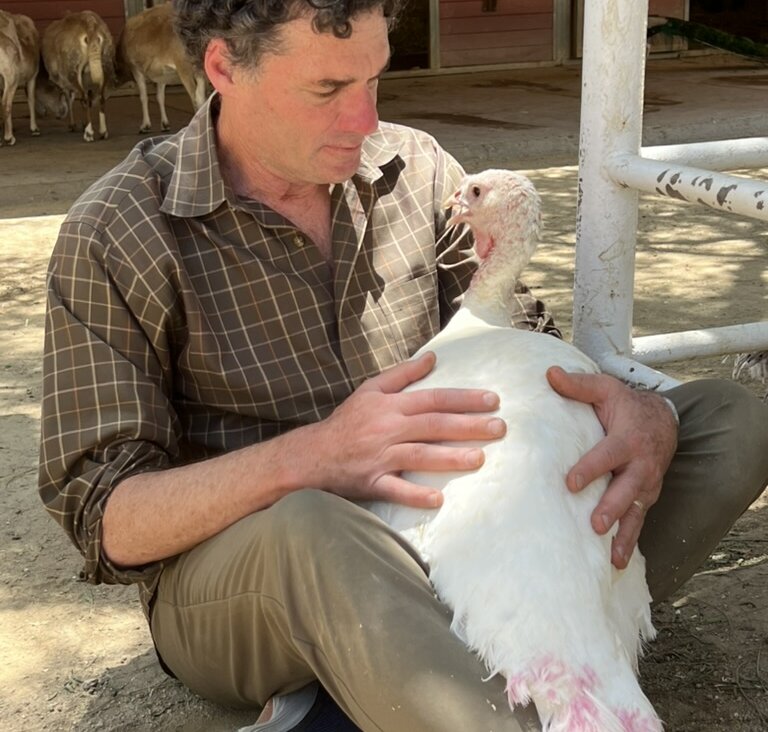Here’s how US Jewish groups are helping overwhelmed health care workers

Image by Getty Images
(JTA) — When the coronavirus pandemic began sweeping across America, New Orleans artist and former paramedic Peter Seltzer decided he had a role to play.
Seltzer not only came out of EMT retirement to pick up paramedic shifts, he also investigated how else he could help health care workers by consulting with colleagues at his local Jewish federation, which had been holding weekly briefing calls with doctors to ascertain needs. Top of the list was the need for more PPE — personal protective equipment.
In short order, Seltzer, who is also a federation board member, hired a staff of four and repurposed the laser cutter he uses in ordinary times to fashion sculptures in order to manufacture face shields for medical workers.
“I saw firsthand there was not enough equipment, and so I knew for my own safety and for the safety of my colleagues around the nation we needed to get PPE produced,” Seltzer said.
In the first three weeks, Seltzer made more than 12,000 shields in his studio. His staff oversees 24-hour production while Seltzer puts in 12-hour overnight paramedic shifts.
“We have a number of very dedicated health workers in our community,” said Arnie Fielkow, the CEO of the Jewish Federation of Greater New Orleans, which has been tapping its members to help with needs it identifies through conversations with local hospital systems.
“New Orleans is unfortunately uniquely qualified to deal with major disasters, having gone through Katrina,” Fielkow said, referring to the 2005 hurricane that devastated the city and prompted the development of streamlined disaster-response mechanisms. “What’s truly amazing is a number of our businesses have converted their operations.”
Among them is the conversion of a local factory for making Sazerac, an alcoholic beverage, into a production facility for hand sanitizer.
What’s happening in New Orleans is emblematic of the ways that Jewish federations and their partners across the country are helping those on the front lines of this epidemic: identifying needs and tapping their networks of agencies, supporters and members to respond to the crisis.
In Chicago, a federation partner is setting up a telephone hotline to provide psychological counseling to doctors, nurses, orderlies and other health care workers who might be emotionally overwhelmed.
In northern New Jersey, the federation is sending meals to local hospitals and helping obtain personal protective equipment for staff at partner agencies who work with disabled populations.
In Detroit, federation leaders are figuring out how to stock staff pantries at local hospitals and clinics with home kitchen staples, so that front-line health care workers don’t have to stop at a market and risk contagion to pick up toilet paper or milk at day’s end.
Zoom meetings with constituent agencies and partners to check in on how best to meet new challenges in these ever-changing circumstances are now part of the routine at the Jewish Federation of Metropolitan Detroit.
“This communication — from Day 1 of the crisis — has led to collaboration in many areas: procuring medical supplies for staff at Jewish residential buildings, cleaning solutions, food distribution, online programming and more,” said David Kurzmann, the federation’s senior director for community and donor relations.
Among the new initiatives is a meal delivery program for homebound adults. The local Jewish Family Service agency takes requests for meals, which are then prepared by a caterer for Friendship Circle, a Jewish organization that serves people with disabilities. The meals are packed at the Jewish community center and delivered by Kosher Meals on Wheels, which is a program of the National Council on Jewish Women in Michigan.
“We are running an emergency campaign, an emergency task force and a variety of collaborative platforms to support and coordinate the activities of our local agencies — around older adults, food and housing, emergency financial assistance, mental health and other areas of need,” said Ted Cohen, the federation’s chief marketing officer.
In Chicago, the Care for the Caregiver program run by Sinai Health System, a hospital system connected to federation, offers emotional support for health care workers via hotline and in consultations at its campuses.
Meanwhile, community members have been contributing money to the hospital, while local restaurants are sending meals to health care workers.
“What’s been amazing these past few weeks to see is the efforts in our community to take care of us,” said Dan Regan, vice president for communications and marketing at Sinai.
Pam Austin, senior director for marketing and communications at JCFS Chicago said, “The helpers have needs just as much as anybody else, and we’re sensitive to that because that’s what we do. It speaks to our mission and the values of our agency as a whole.”
That goes for the 500 staffers at Austin’s agency, too. JCFS already has established virtual mental health services for clients, but it’s also working on connecting its staff to social workers with another agency’s social workers to help them cope with the emotional toll of the pandemic.
“We would offer mutual support to their social workers and they would in turn do so for ours,” Austin explained. “We need to do something to tend to our staff’s emotional needs at this time. Theirs is always tough work, but under these circumstances it’s even more so.”
Regan added, “People need to be reminded that it’s OK not to be OK sometimes.”
The post Here’s how US Jewish groups are helping overwhelmed health care workers appeared first on Jewish Telegraphic Agency.
A message from our CEO & publisher Rachel Fishman Feddersen

I hope you appreciated this article. Before you go, I’d like to ask you to please support the Forward’s award-winning, nonprofit journalism during this critical time.
We’ve set a goal to raise $260,000 by December 31. That’s an ambitious goal, but one that will give us the resources we need to invest in the high quality news, opinion, analysis and cultural coverage that isn’t available anywhere else.
If you feel inspired to make an impact, now is the time to give something back. Join us as a member at your most generous level.
— Rachel Fishman Feddersen, Publisher and CEO






















